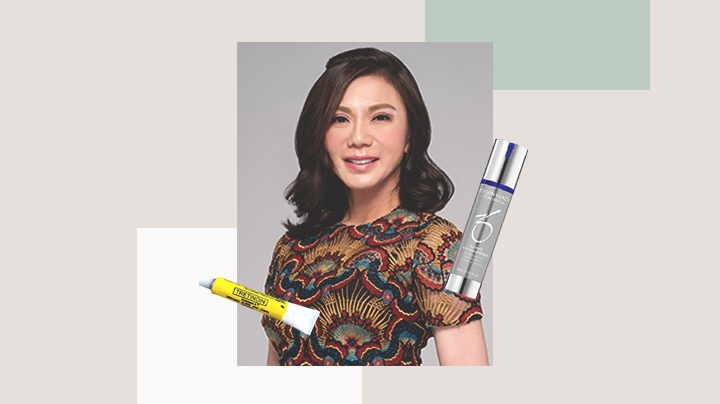10 Active Ingredients Your Skin Will Love
February 12, 2024

Like Vitamin C and niacinamide, Vitamin A is another skincare ingredient that even the greenest of skincare beginners have some cursory knowledge of. It’s readily available in department store aisles and drugstores, primarily because it’s fantastic for cellular turnover and promoting natural moisturization. But in speaking about Vitamin A, two words often surface: retinol and tretinoin. They sound alike, but where do they differ, and which one is better for you?
The umbrella term for retinol products is “retinoids,” AKA derivatives of Vitamin A, which is a key ingredient in boosting the turnover of cells. Quicker cell turnover translates to less dead skin and pigmentation, which results in overall clearer, brighter skin. And since Vitamin A is a great antioxidant, it helps fight free radical damage and helps reduce the signs of aging. For retinol to work, it needs to be converted by your body with the use of special enzymes first. Once they have been converted into the active metabolite, retinoic acid, you’ll start to see its effects. Topical retinol products can be found in various concentrations and formulas on the market, but stronger formulations may only be available via prescription. (Related: What’s Retinol, and Why Do You Need It in Your Skincare Routine?)
Tretinoin is hailed all over the world for its acne-busting properties. It’s also a retinoid, but unlike retinol, it’s a concentration of pure retinoic acid, making it powerful for clearing moderate to severe acne. Because it’s *already* retinoic acid, it works significantly faster than retinol, because no conversion in the skin needs to take place—it starts working in the skin right away. Because it’s so strong, it tends to be available via prescription only. The patient you see in the photo above was prescribed 0.05% tretinoin, which helped clear her severe acne (swipe on the photo to see the results).
Dr. Vicki Belo is a huge fan of the stuff. When asked by The Philippine Tatler about the best skin care advice she could give someone, she replied, “Apply tretinoin or retinol every day! You should do this from the age of acne, all the way to your seventies, because it dries up oiliness, gets rid of bacteria and normalises skin turnover in your teens. As you get to your thirties, it increases collagen and elastin production.”
However, now that Dr. Belo’s in her sixties, she’s stopped using tretinoin. “”My skincare philosophy has evolved. I used to be more aggressive, wanting to put a lot of tretinoin because I know it’s anti-aging, anti-acne,” she shared with Preview.ph. Now that her bout with adult acne is over, she only uses retinol daily for maintenance, as it’s less intense.
If you’re suffering from a rogue quarantine breakout, retinol can help get rid of those pimples (and the scars they leave behind) right away, when combined with other anti-acne products. Jess Wilson was prescribed retinol for a quarantine breakout last May, and her skin cleared in just weeks. It’s also good to use as a regular part of your routine, just for hydration and refining skin texture. (Related: The Belo Shop Products Jess Wilson Used to Clear Her Quarantine Breakouts)
For more severe cases of acne, our Belo MD may recommend that you start adding tretinoin to your routine. The first thing it’ll do is clear up your active breakouts (though this will take some time), and with continued use, it’ll clear acne scars and improve your overall skin quality. Win, win, win.
Use these links to view the ZO® Wrinkle + Texture Repair (contains retinol), ZO® Retinol Skin Brightener 0.5% Retinol, and the Dermese-A 0.05% Tretinoin cream at The Belo Shop.
If you’d like to get a prescription for retinol or tretinoin, click here to book an online consultation with a Belo MD. If you want to speak to the Beauty Expert herself, click here to book an online consultation with Dr. Vicki Belo.